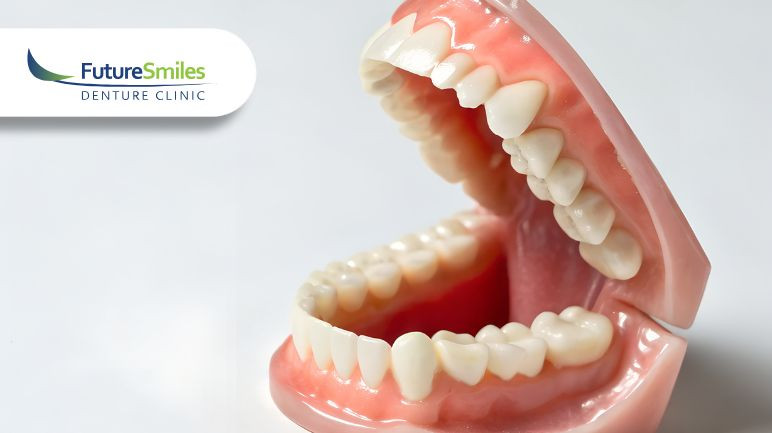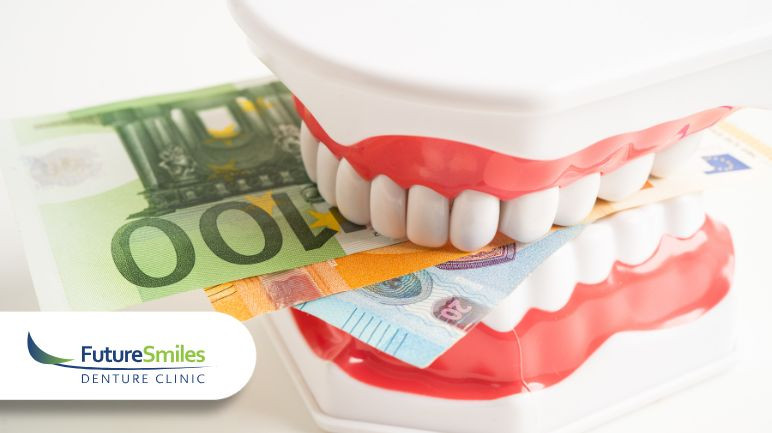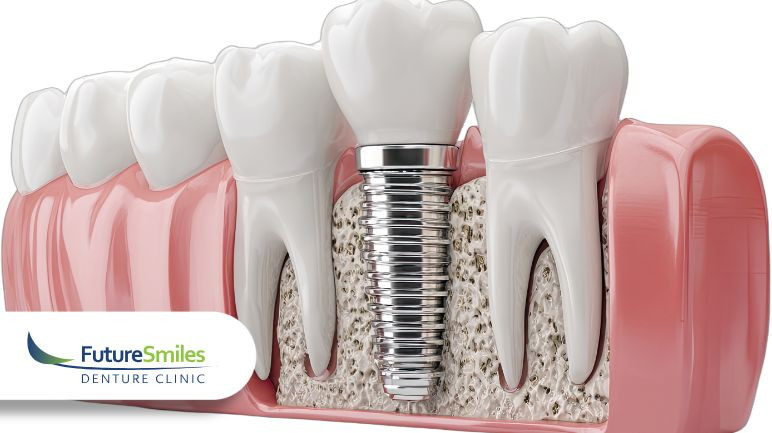Having dentures doesn't mean you have to skip out on the foods you love! From partial dentures to denture implants, our Calgary denturist can help you find a tooth replacement option that looks and functions just like your natural teeth.
Adjusting to eating with full/partial dentures can take a little time, practice and patience, but after a while, you should be able to return to your normal diet.
To reduce any impact your dentures may have on your daily life, it’s important to work with the right denturist who has the proper skills in constructing dentures or denture implants that look, feel and function like your natural teeth.
High-quality, expertly constructed dentures have many benefits including:
- Excellent fit and greater comfort
- No problems eating and/or speaking
- No more mouth soreness or irritated gums
- Longer lifespan and fewer repair costs
At our Calgary denture clinic, we are able to create custom, high-quality dentures or denture implants for patients across Calgary. Our denturists offer flexible financing options to suit any budget so that, no matter your circumstances, you never have to compromise your oral health.
The Best And Wost Foods For Denture Wearers
While the degree of diet restriction you experience depends largely on the quality of your full/partial dentures, there are some foods that patients still experience some difficulty with when wearing replacement teeth.
Here are some of the foods denturists warn it’s best to avoid when wearing dentures and some great alternatives to ensure the longevity of both your dentures and your oral health:
Best:
Ripe fruits, cooked veggies & smoothies - Many fruits become soft when ripe. This includes bananas, mangos and tomatoes. You can also cook vegetables to get them soft for eating with dentures. Smoothies will allow the blender to do most of the work for your teeth while allowing you to reap all the health benefits.
Protein Rich Spreads - Some spreads can be thick and chewy. When wearing partial dentures, stick to protein-rich, thinner spreads such as hummus, tuna or egg salad to give flavor to toast, crackers and sandwiches.
Ground beef or pulled pork, fish - Eating meat with dentures can prove to be a significant challenge. To make it easier, find ways to cook beef/pork until it becomes softer and easier to eat. Fish is a great alternative for full/partial denture wearers as it is soft and easy to break down. At times, it may be necessary to cut your meat up into smaller pieces so that you are able to enjoy your meal without any challenges.
Soft chocolate - If you have a sweet tooth, chocolate is a great option for denture wearers. It has numerous health benefits and doesn’t require any chewing. Don’t like chocolate? Trying sucking on hard candy just don’t bite down on it!
Worst:
Crunchy fruits & vegetables - With full/partial dentures, you may find it difficult to exert enough force to adequately bite and chew hard fruits and vegetables such as carrots, apples, celery or corn on the cob.
Peanut butter & other nut butters - Nut butters such as peanut or cashew butter can be very thick and difficult to chew. You may find that they cling to your dentures and,even if they don’t pull them off, they will be very difficult to clean off.
Steak/pork chops - Steak or pork chops can be extremely tough to chew and break down with dentures. In addition, the chewing techniques required to break the tough, fibrous protein don’t work well for dentures.
Hard candy - Candies such as toffees and brittles are chewy, sticky and hard. Not only can they stick to your dentures, they could break or dislodge them.
How to Eat With Your Full/Partial Dentures
Whether you are wearing full or partial dentures, it’s important to discuss with your denturist the types of foods you can eat safely and how you should go about eating and drinking with your replacement teeth.
Here are some helpful tips on eating with your dentures:
- In the beginning, refrain from using your front teeth for biting.
- Cut your food up into small pieces and try to chew on both sides of your mouth simultaneously
- To practice eating with your dentures, try easy-to-chew soft foods before moving on to tougher meats and hard vegetables
- To reduce any potential embarrassment, practice chewing your favorite foods at home first before you do it in public.
- In most cases, new denture wearers have difficulty eating salads because lettuce doesn’t tear well with replacement teeth.
Benefits of Denture Implants
Denture implants are an innovative and advanced alternative to more traditional full/partial dentures. They provide a strong foundation for fixed or removable dentures and are made to match the look, feel and function of your natural teeth.
While there are many reasons why your denturist may recommend denture implants over full/partial dentures, one of the most significant is that it makes it easier for you to continue enjoying your favorite foods.
Unlike sliding dentures which make chewing difficult, denture implants are designed to fuse with your bone. This allows them to function more like your own teeth, allowing you to eat whatever you want with confidence, without worry and no pain.
Call Today
To find out more about our replacement teeth options from partial dentures to denture implants, call our Calgary denturist today at 403-475-0016 or fill in our online contact form.






